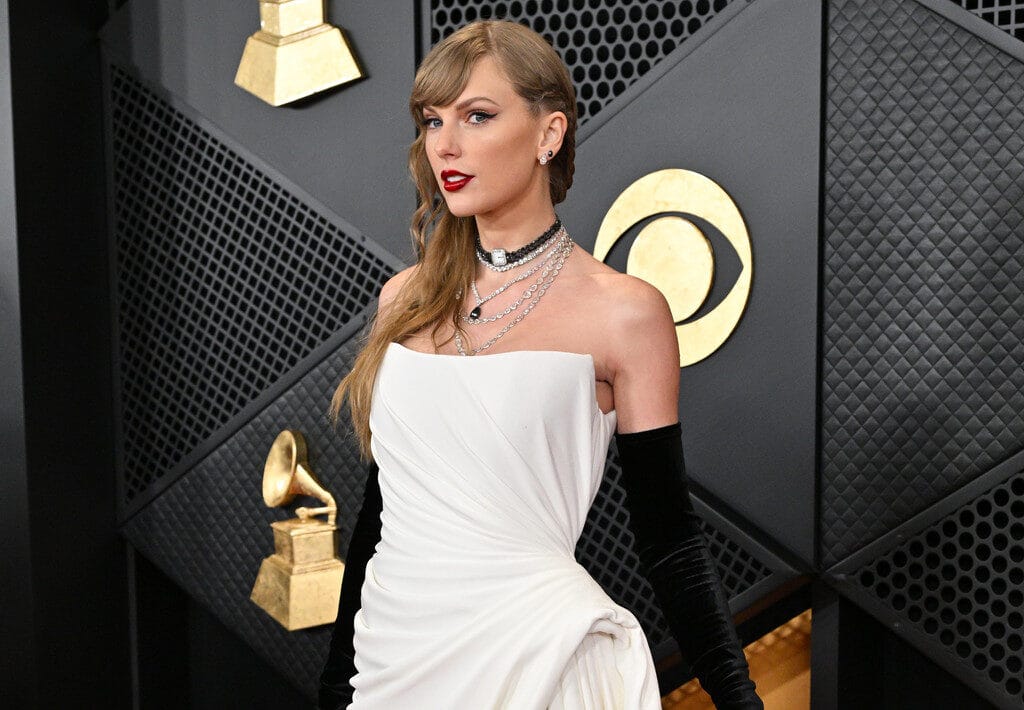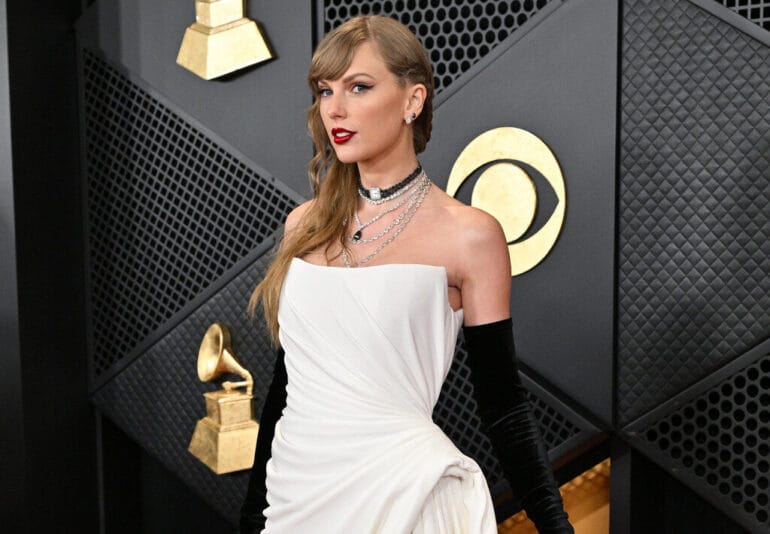Listeners:
Top listeners:
-
 play_arrow
play_arrowRadio 854 (USA)
-
 play_arrow
play_arrowRadio 854 (EU)
-
play_arrow
Radio 854 Gold
-
 play_arrow
play_arrowTop Techno Podcast Yana Bolder
Taylor Swift to give deposition in Blake Lively and Justin Baldoni legal case

September 13, 2025 – Radio 854 Music News:
Taylor Swift, Blake Lively & Justin Baldoni: What We Know About the Deposition Twist
 A new turn has emerged in the ongoing lawsuit between Blake Lively and Justin Baldoni over allegations of sexual harassment, retaliation, and defamation connected with their film It Ends With Us. Taylor Swift has been pulled into the drama—though her role remains contested. Here’s a breakdown of the current situation, what’s at stake, and what’s likely to happen next.
A new turn has emerged in the ongoing lawsuit between Blake Lively and Justin Baldoni over allegations of sexual harassment, retaliation, and defamation connected with their film It Ends With Us. Taylor Swift has been pulled into the drama—though her role remains contested. Here’s a breakdown of the current situation, what’s at stake, and what’s likely to happen next.
What’s the Case About?
Blake Lively filed a lawsuit in December 2024 accusing Justin Baldoni, his studio (Wayfarer Studios), and others of creating a hostile work environment on the set of It Ends With Us, among other claims.
Baldoni responded with a countersuit (for defamation/extortion claims) naming Lively, her husband Ryan Reynolds, and some associated PR/publicity figures. That countersuit was later dismissed.
Where Taylor Swift Comes In
Swift’s connection to the case stems partly from her friendship with Blake Lively, but more concretely, her song “My Tears Ricochet” was licensed for use in the film’s soundtrack. Swift is not credited with any other creative involvement (writing, directing, editing, etc.).
Back in May 2025, Baldoni’s legal team subpoenaed Swift to act as a witness; Swift’s representatives pushed back, saying the move seemed more about generating media attention than gathering relevant evidence.
What’s the Debate Around Deposition?
Baldoni’s Position: His lawyers claim Swift has agreed to appear for deposition between October 20–25, 2025, citing her preexisting professional obligations as the reason why earlier dates aren’t feasible.
Swift’s Position: Her legal team says she did not agree to a deposition, insists she has “no material role” in the litigation, and is only willing to appear if legally compelled. They note that they were only made aware of the request to depose her very recently.
The Legal Complication: Discovery Deadlines & Judge’s Ruling
Part of the tension comes from the schedule for the case: there’s a discovery cutoff date (the deadline by which all depositions, document exchanges, witness disclosures etc., must happen) set for September 30, 2025.
Baldoni’s request would push Swift’s deposition beyond those deadlines. Lively’s team is pushing back, arguing that it’s improper to extend discovery for a third party whose relevance is unproven or marginal.
According to recent reporting, the judge denied Baldoni’s request to extend the discovery period for the deposition, citing a lack of evidence from Baldoni’s team that Swift’s deposition is essential, and criticism for delaying until the eleventh hour.
What This Means & What to Watch
Likelihood: Unless Baldoni can convince the judge of Swift’s relevance, or unless there is new evidence tying her more directly to the alleged wrongdoing, it’s possible Swift will not be deposed. The judge has shown reluctance to grant extensions without strong justification.
Risk for Parties: If Swift is deposed, it could open up renewed media scrutiny not just of Swift, but of her friendship with Lively, the behind-scenes creative inputs, and what influence (if any) was exerted. For Baldoni’s side, this could be a way to buttress claims; for Lively’s, it might be a distraction or worse.
Schedule & Trial: The trial is currently set for March 2026. Any extension of discovery or inclusion of Swift might shift timelines, especially if reopening deadlines or redoing motions is required.
Conclusion
Taylor Swift has become a potentially dramatic side character in a high-stakes legal conflict between two Hollywood actors. But from what is public so far, her role appears peripheral. Whether she’ll be required to testify—and under what conditions—hinges on how persuasive Baldoni can be in court, and how much evidence surfaces that directly involves Swift beyond simply licensing a song and being a friend. Either way, this case remains closely watched, not just for the legal outcome, but for what it says about the intersection of celebrity, media, and legal strategy in our era.
Written by: Alex
Similar posts

TOP CATEGORY
FEATURED CHART
-
 play_arrow
play_arrowAperture Harry Styles
-
-
 play_arrow
play_arrowChoosin' Texas Ella Langley
-










Post comments (0)